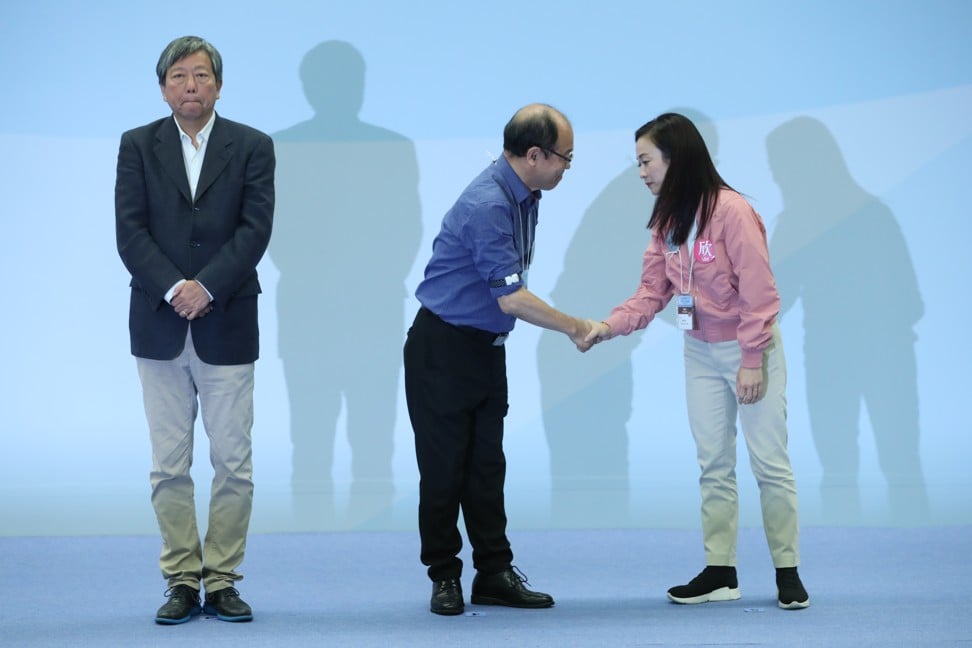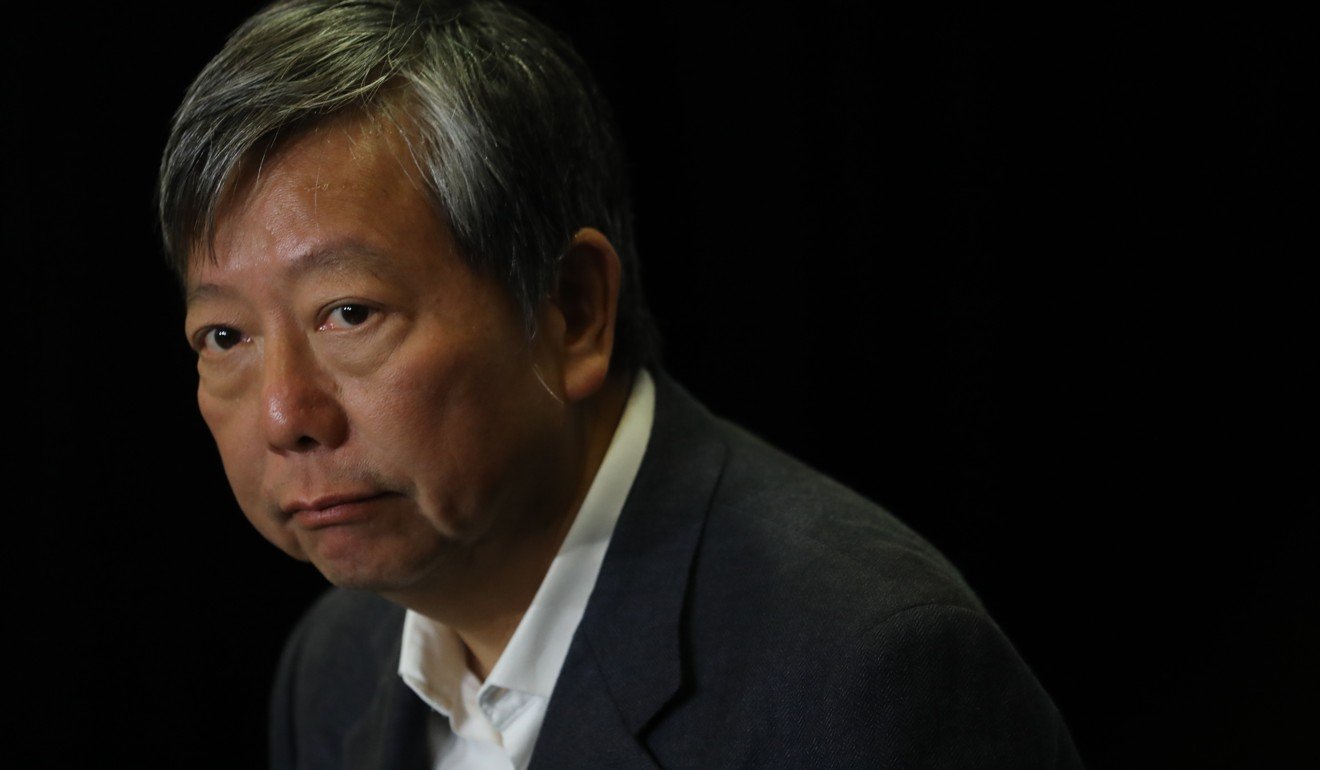
Chan Hoi-yan says she has no plans to join political party after win in Hong Kong by-election
- Former journalist and political assistant denies being supported by Beijing’s liaison office in the city
- Chan got 106,457 votes, to beat veteran pan-democrat Lee Cheuk-yan, who got 93,047
Hong Kong’s newest legislator-elect said on Monday she had no plans to join any party, despite support from pro-Beijingers.
Chan got 106,457 votes. Her main rival, Labour Party stalwart Lee Cheuk-yan, got 93,047, while Frederick Fung Kin-kee, a former ally of the pan-democrats, got 12,509.
She was supported by pro-Beijing heavyweights such as Basic Law Committee vice-chairwoman Maria Tam Wai-chu and Starry Lee Wai-king, chairwoman of the city’s largest pro-Beijing party, the Democratic Alliance for the Betterment and Progress of Hong Kong.
“So far I did not receive any invitations. Up to now I do not have plans to join any parties,” Chan told a radio programme on Monday morning.

Chan also dismissed accusations from her critics that she was supported by Beijing’s liaison office in Hong Kong. She conceded that she had met officials from the office occasionally in the past, but said she did not contact it in the run-up to the by-election.
“In past events such as National Day celebrations, it is unavoidable that I would meet the office’s representatives. But we did not discuss or touch on the by-election. Those were just usual social functions,” the former journalist and political assistant continued.
She said she was able to defeat the pan-democrats because her supporters and the major pro-establishment parties were united in supporting her.
However, Ken Yau, assistant director of the University of Hong Kong’s faculty of social sciences, said a main reason behind the pan-democrats’ defeat was that they were unable to draw votes from the localists’ supporters.
Referring to Lee and Fung, Yau said: “The background of the two pan-democratic heavyweights is very similar. The chance of winning is very slim anyway.”
“Lee is still some 13,000 votes away from Chan. It showed that the localists did not see the need to go against their wishes to vote for a less preferred candidate,” Yau argued.
He added that was also the reason pan-democratic candidate Edward Yiu Chung-yim lost an earlier by-election in Kowloon West in March.
After the general election of 2016, six pro-democracy lawmakers – including Yiu – were ousted for improper oath-taking. By-elections were held in March to fill four of the seats, as two legislators – Leung Kwok-hung and localist Lau Siu-lai– decided to appeal.

Lau dropped her appeal in May, triggering Sunday’s by-election. She attempted a comeback bid but was barred from running on the grounds she had called for the city’s self-determination. Lee entered in her place.
Yau said Chan tried hard to portray herself as an independent, rather than a pro-Beijing politician, and it helped her to attract voters in the middle ground.
“It is more comfortable [for such voters] to vote for her and easier for the pro-Beijing camps to draw votes for her,” he said.

